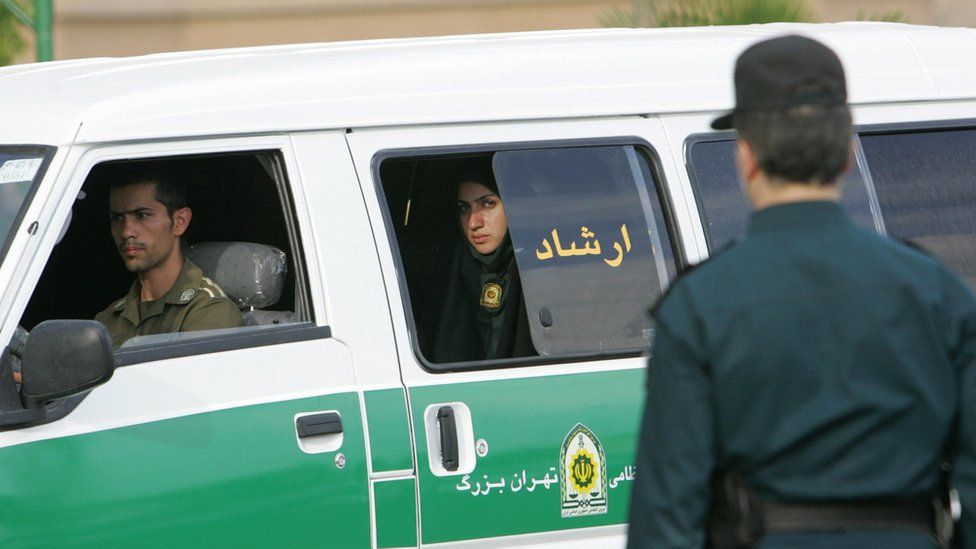برای خواندن این مطلب به فارسی اینجا را کلیک کنید
On Thursday, July 27, the Ilna news agency reported that the Judicial and Legal Commission of the Islamic Parliament had approved and published the “Hijab and Chastity” bill. This bill, originally drafted by the judiciary and submitted to the government, has now been revised and republished by the Parliamentary Judicial Committee under the title “Family Protection Bill by Promoting the Culture of Chastity and Hijab.” There are 70 articles in the revised bill, significantly harsher than its original version. For this bill to become law, it must be approved by the entire Parliament and ratified by the Guardian Council. Given the control that proponents of the mandatory hijab have over these institutions, there is a high probability that it will be approved by both entities.
As a result of the revised bill, penalties for refusing to wear a veil and resisting enforcement officers have been increased. A number of institutions, organizations, and ministries are required to comply with the compulsory hijab in the first four chapters of the revised bill. Under the law, these entities must reevaluate and formulate new rules for ensuring compliance with the hijab within their executive domains. In addition, cultural institutions must endorse and publicize the hijab through a variety of means. The bill also emphasizes gender segregation in health care, education, and social services.
There are severe punishments for women who refuse to wear the hijab, including imprisonment ranging from five to ten years or a fine of up to 36 million tomans. Additional penalties outlined in the bill’s fifth chapter are violations of civil rights, the promotion of gender segregation, fines, passport confiscation, and travel bans.
Three intelligence agencies – the Ministry of Intelligence, the IRGC Intelligence Organization, and Faraja Intelligence Organization – as well as the police command itself, Basij, and the headquarters of the command of good and evil – are authorized to enforce these regulations on women in public spaces by the bill.
The publication follows another disturbing setback for Iran’s human rights landscape, yet again, via the return of the Ershad Patrol, also known as the Morality Police. The function of this policing entity has been under significant fire and scrutiny for nearly a year now, since the death of 22-year-old Mahsa Amini who was brutally killed while in custody of the Ershad Patrol for her “improper hijab”, sparking nationwide protests. After months of ongoing protests, Iranian police had announced in December 2022 the end of Morality Police, though since that announcement Iranian women were still targeted for improper hijab–or the lack thereof–in other ways. However, the current, official return of the Morality Police has now raised concerns regarding the further curtailment of personal freedoms, particularly regarding the mandatory hijab requirement.
Saeed Montazer al-Mahdi, the spokesperson for the Police of Iran (Faraja), announced on July 16 that foot and car patrols would be established to combat those who “continue to break the norm regardless of the consequences.” In addition to “popular demands and wishes of various social groups and institutions,” Montazer al-Mahdi cited the “emphasis of the President and the Judiciary” as reasons to reinstate these patrols, with the aim of “expanding public security and strengthening family foundations.”
Since this announcement, social media has been flooded with videos of women being confronted by individuals suspected to be police officers over non-compliance with the mandatory hijab. These videos have prompted speculation that Ershad patrol cars have returned to the streets in force.
According to several photos posted on social media, Ershad patrol vans have been in Tehran since July 14. However, unofficial patrol encounters with women regarding the mandatory hijab have continued to take place in recent months. An unmarked white van parked on a Tehran street was seen parked alongside a police officer in one photograph which circulated online.
The apparent reintroduction of the Morality Police has dashed hopes for immediate progress on rights in the wake of the Woman, Life, Freedom movement. Notably, these developments occurred close to the recent “Chastity and Hijab” day on July 12th where media outlets affiliated with the government reported on “popular gatherings” both in support of and in opposition to the removal of the hijab.
Nevertheless, reports from the past few months indicate that, even without formal Morality Police, women have been facing judicial sentences for publicly defying the mandatory hijab, including notable actors. Azadeh Samadi, an Iranian actress, has been banned from engaging in any online activity for six months and is also required to visit a psychological center biweekly and provide a health certificate for an alleged “antisocial personality disorder” following her defiance of the hijab law. This sentence drew sharp criticism from the Directors Association and the Iranian Cinema Producers Union, who condemned it as an affront to the principles of religious democracy and called for its immediate termination. Additionally, Leila Blokat, another Iranian actress, has been sentenced to one year in prison, as well as several bans and restrictions on her professional and personal activities. These heavy sentences for actors who defied the mandatory hijab requirement demonstrate the trend of escalating repression following the “Women, Life, Freedom” protests, extending beyond the targeting and restricting committed by the Ershad patrols.
Another disturbing ruling involved a woman sentenced by Mohammad Hossein Ismail Moreneh, head of Branch 104 of Varamin Criminal Court 2, who was ordered to pay a fine in lieu of two months of imprisonment – but is still required to engage in one month washing dead bodies at a funeral home in Tehran. In addition to sparking outrage, the sentence was viewed as deeply disrespectful for the accused as well as for funeral home workers.
Lawyers, activists, and clerics have criticized these sentences for violating the country’s laws and Sharia principles. Such rulings, they argue, not only undermine the dignity of the judiciary, but also perpetuate public humiliation.
In another aspect of the suppression connected to the mandatory hijab, over twenty government-affiliated publishers have severed ties with Taqcheh, an online bookstore, after employees failed to comply with the mandatory hijab law. In addition, these publishers claim that no action has been taken to rectify what they see as a transgression in addition to disobeying the hijab law. Ayatollah Khamenei, the Leader of the Islamic Republic, controls Islamic Revolution Publications, which is among these publishers. Amir Kabir, Astan Quds Razavi, and Surah Mehr are also associated with Farabi Cinema Foundation and publishing entities. Moreover, the judiciary announced that it had initiated legal proceedings against Taqcheh.
Also, an order issued by Iran’s Minister of Culture and Islamic Guidance, Mohammad Mahdi Esmaili, has banned certain actors from participating in the Iranian Short Film Academy (ISFA). A poster from the film The Death of Yazdgerd III featuring an unveiled image of Sosan Taslimi was used for the 13th short film festival. It was later revealed that the festival had been halted by the Minister of Culture and Islamic Guidance on direct command.
An alleged violation of the Hijab Law was cited as the reason for this decision. Mr. Esmaili confirmed following a meeting with the Iranian government delegation that he had instructed agencies within the Ministry of Guidance to vigorously pursue and enforce the hijab issue. As well as justifying the ban on the film festival, he stated that it was due to a lack of respect for the hijab law that the decision was made.
Qom Seminary’s Assembly of Teachers and Researchers also expressed criticism specifically on the return of patrols enforcing compulsory hijab, stating,”These days, once again, we witness unreasonable and inhumane confrontations by the security forces with unveiled or improperly veiled women, which not only lack any legal or religious justification, but also undermine Islam and humanity.”
There has been widespread criticism and reaction following the resurgence of the Ershad Patrol as well as the imposition of unusual sentences against hijab protestors. The government has implemented new strategies, including humiliating dissenters, in response to the apparent failure of previous measures to contain civil disobedience. Recent developments in Iran have reignited concerns about personal freedoms and human rights, which cast a shadow on women’s attempts to gain greater agency and autonomy.
NIAC condemns the suppression of individual freedoms in Iran, especially for women, and urges the Iranian authorities to respect the fundamental rights of Iranians, including freedom of clothing and lifestyle. The freedom to choose attire is explicitly enshrined in the Universal Declaration of Human Rights and the International Covenant on Economic, Social and Cultural Rights to which Iran is party. The Iranian government has continued to flagrantly suppress the individual rights of its people, in violation of its international human rights obligations, through the return of the Ershad patrol and harsh crackdowns on individuals and entities. We urge that Iranian authorities halt these actions, release all prisoners of conscience and drop charges against all those asserting their protected rights to freedom of speech and dress.
Back to top
